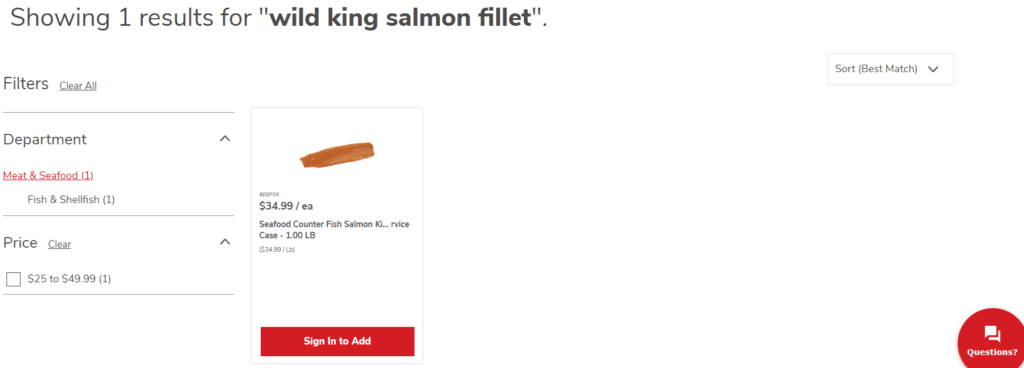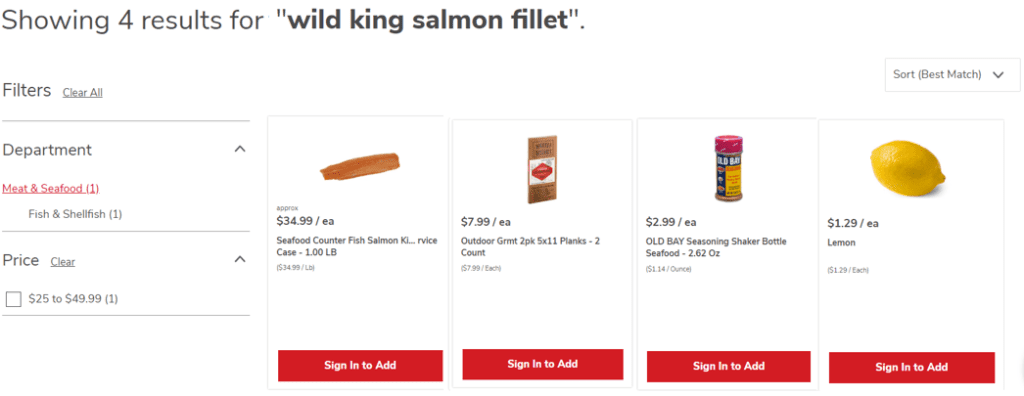How Zero Results Are Killing Ecommerce Conversions
Learn how to power the product discovery experience with semantic vector search to eliminate false zero results and accelerate the path to purchase.

The foundational approach to precision, recall, and relevance is churning out a lackluster ecommerce site search experience: too many zero results, irrelevant results, and results excluding many relevant products. Plus, it takes too many searches to fulfill the customer’s goal.
We’ve painted ourselves into a corner with ecommerce site search experiences driven by a lexical, or literal, approach that requires matches between keywords and the product discovery index. If the search engine strays from precision, we quickly wrangle it back in with business rules. Search is on a tight leash because of high customer expectations and poor experiences. Hint: tightening up the leash is not fulfilling your customer’s goals.
A recent study from Baymard found that product search is so poor that 31% of searches ended in vain.
“And among the top 60 e-commerce sites, a whopping 70% of the search engines are unable to return relevant results for product type synonyms – requiring users to search using the same jargon as the site – while 34% of the sites don’t return useful results when users search for a model number or misspell just a single character in a product title.”
Fulfilling customer goals sounds easy, and it can be! However, it will take a different approach to precision, recall, and relevance. It will also take a different approach to interpreting queries, from lexical to semantic vector. This evolution in product discovery is made possible by the recent launch of Lucidworks managed service, Never Null, which leverages a combination of mature semantic search strategies and dense vectors. The easy part here is that nothing is manual, this is a true AI-driven approach that gains intelligence from the exhaust of your shopper behavioral signals.
What Is Semantic Vector Search?
Here’s the technical explanation:
- Semantic vector search uses deep learning to associate products with shared semantic vector space queries. An encoder model learns from product discovery signals to encode products and queries as vectors. Incoming queries are encoded on the fly, and then products that are “near” the query in the shared vector space are returned.
The practical explanation:
- A vector space organizes product search and queries based on their similarities to each other, relative to the rest, not just their lexical similarities. Think about a fish counter that has all the fresh seafood, that’s one relationship among the products. The seafood is organized by shellfish and fish meats, another relationship. Lastly, the lemons, cedar boards, and OldBay are at the counter because they are peripherally related.
The visualization below abstracts this by showing concentrations or groups of colors representing the different categories of products concerning each other.

Semantic vector search considers relevance from the perspective of the customer’s goal or intent, retrieving additional products to increase the value of the results to that shopper. Where lexical search falls short, offering too many (or not enough) product search results, semantic vector search delivers.
Slash Zero Results Queries
A common problem is that shoppers often search for products you sell, but your current approach can’t connect the dots between the query and your products. Whether it’s a brand you don’t carry, out-of-stock products, or nomenclature, semantic vector search will return the most relevant products to fulfill that shopper’s goal—no manual intervention or rules required. Real-time query interception unlocks a gold mine of value for your shoppers and your business, converting zero results into add-to-carts.

False zero results lead to frustrated shoppers and high exit rates.
The above product search shows that the “shop vac” query returned zero results. That doesn’t mean the store doesn’t have shop vacs, it means that nowhere are the products called “shop vac” and so lexical product search falls short of returning any results. Without rules or manual intervention, semantic vector search can learn from your persistent shoppers and retrieve relevant products for previously zero-result queries.

How To Balance Precision and Recall
This strategy may require some consideration and negotiation internally at your company. Do you want to deliver precisely what the shopper is asking for? Or do you want to understand their intent and fulfill their goals? This sounds like an easy answer, but as mentioned before, it’s a fundamental change to today’s definition of precision, recall, and relevance.

A “wild king salmon fillet” search result is precise and relevant.
Semantic vector search will enrich the results with additional related products to reduce friction in the product discovery journey, shorten the path to purchase, and show your shoppers you understand their goals. In this case, it’s making a delicious, well-seasoned piece of salmon.

A search result like this can help the shopper fulfill their goals faster and easier. Increasing conversion and AOV along the way.
Finally, a Solution for Zero Result Searches
Time is of the essence, and every zero-result search query represents a missed opportunity. Not only does it frustrate potential customers, but it also necessitates additional resources to manage and rectify these issues manually. This is where the brilliance of semantic vector search comes into play, particularly with our Never Null service.
- Reduced Manual Intervention: Unlike traditional lexical search mechanisms, semantic vector search significantly reduces the need for manual rule creation and intervention. By intelligently understanding and interpreting user queries, it diminishes the occurrence of zero-result pages without demanding constant oversight from your team.
- Increased Conversion Rates: By effectively bridging the gap between user queries and relevant product search listings, semantic vector search facilitates a smoother shopping experience. This accelerates the path to purchase, potentially leading to higher conversion rates and increased average order values.
- Optimized Search Management: With Never Null, managing your ecommerce site search becomes less about chasing zero-result queries and more about refining and optimizing the user experience. The AI-driven nature of semantic vector search means it continually learns and adapts, freeing your product search managers and merchandisers from the tedious task of manual rule creation.
- Future-Proofing Your Platform: The world of ecommerce is ever-evolving, and staying ahead of the curve is paramount. Investing in a robust, AI-powered search solution like semantic vector search addresses the immediate challenges and allows your platform to adapt seamlessly to future search trends and user behaviors.
- Quick ROI: The swift implementation and noticeable improvements in search functionality can lead to a quick return on investment (ROI). As the system autonomously improves over time, the long-term cost benefits become increasingly apparent.
Embracing semantic vector search with Never Null is not merely a remedy for today’s challenges; it’s a strategic move towards creating a more efficient, user-friendly, and cost-effective ecommerce platform for the foreseeable future. Contact us to explore how Never Null can redefine your approach to ecommerce site search and contribute to a more profitable and user-centric shopping experience.
You can also check out our on-demand webinar: Say Goodbye to Zero Results to learn how top retailers use semantic search to solve the “null results” problem.
LEARN MORE
Contact us today to learn how Lucidworks can help your team create powerful search and discovery applications for your customers and employees.